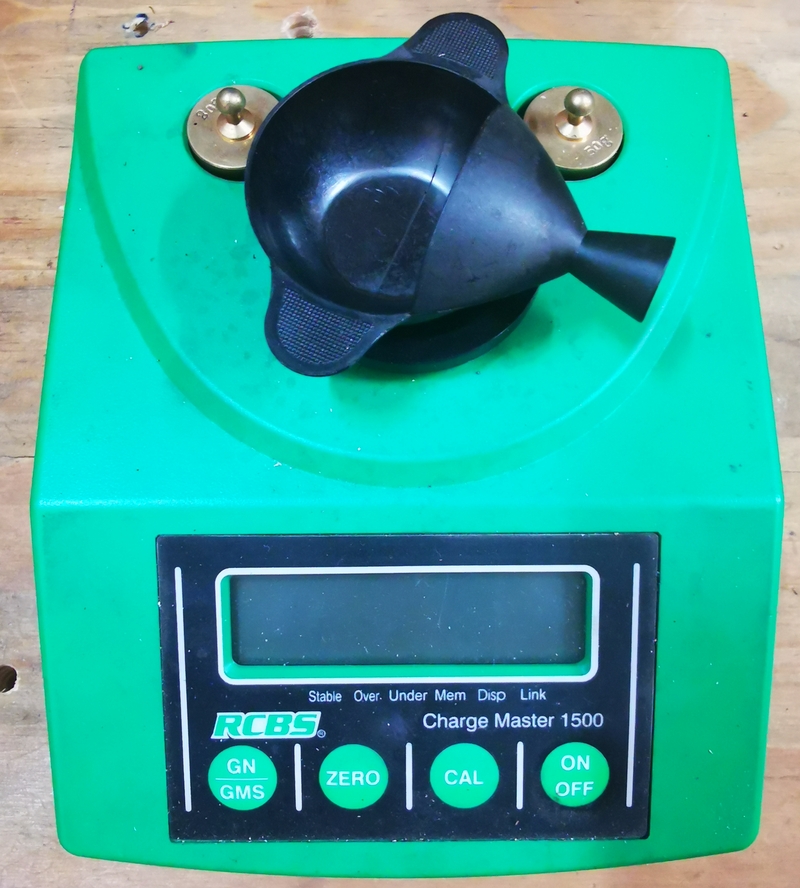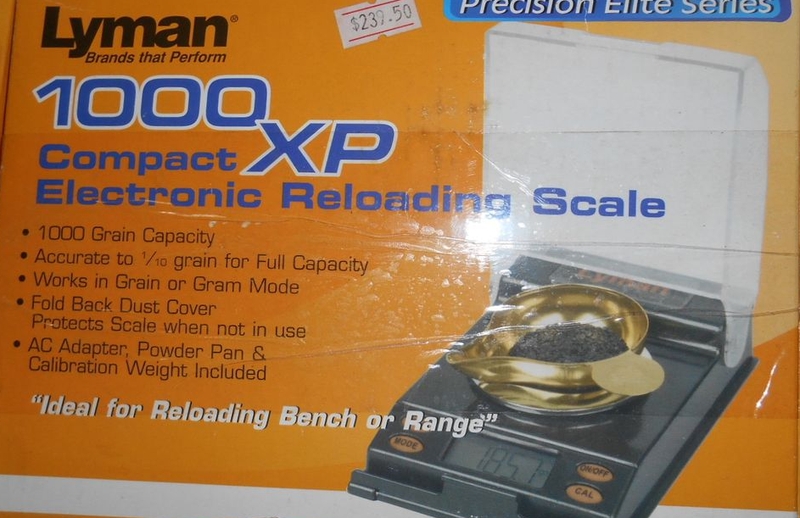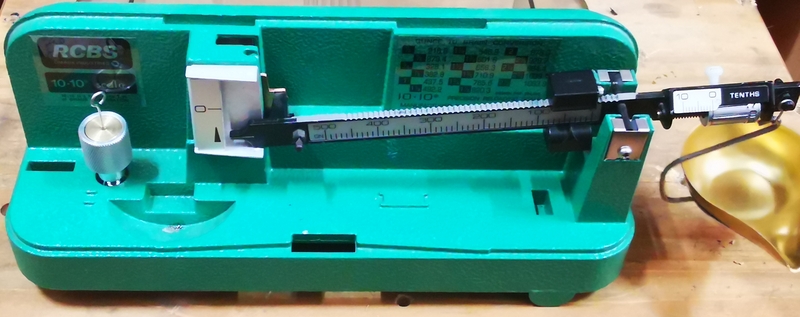Ysterhout Dot Net
In the past, I recommended to get an electronic powder scale, as it is much easier and quicker to use than any beam scale. I did not know it may not be better.
I recommend a good qualiy beam scale, and an entry level electronic powder scale. The beam scale is used to get accurate reference weights and trickling up of rifle powder, and the electronic scale is for spot checking the weight of pistol powder charges, bullets and other items.
In the past, I needed a scale to weigh individual bullets, powder charges, and to trickle rifle charges up to the right weight. It did not matter then if my rifle charges were point-somthing grains over or under, I was reloading for open-sight, big bore rifles that were used at close range.For me then, scale drift was an unknown, I had no idea that my RCS Chargemaster 1500 drifted.
Much later, I got my first rifle capable of sub-moa at range, and over time I began to pay more attention to all the elements that contribute to accuracy, or a lack thereof, and one of those was a consistent powder charge. In that context, consistent to one granule of powder is what I wanted.
That was when I found that the electronic scales, although precise, are not totally reliable, as the reading may change, or drift over time due to ambient temperature changes. For me now, scale drift is not acceptable.
This used to be my go-to scale that I used for everything.

I have put it back into it's original packaging, and shelved it.
I added a cheaper Lyman 1000 XP to my bench, for backup in case the Chargemaster went on the blink.

That scale was not suitable for trickling up on the scale, it lacked the sensitivity to detect small mass changes in the pan. I sold that unit, with full disclosure to the buyer.
Till now, I did not recommend a beam scale, even though I had an RCBS 10-10, for the simple reason that in all my previous years of reloading, I used mine to weigh maybe 20 charges when I first bought it. It's a great quality instrument made by OHAUS. It is slow and cumbersome. I never used it. Until my reloading needs changed, and I needed to dispense consistent weights of powder - consistent to one powder granule - for my target rifles.

This is my 10-10, and I found that it is accurate, as well as reliable. There are a few different scales as good as this one, such as the RCBS 5-10, 5-0-5, Lyman 500, etc. This scale does not drift. The reading does not change with changes in humidity, ambient temperature or nearby electronic equipment. It doesn't need a line filter.
I now use more than one beam scale for precision rifle reloads.
I use the 10-10 scale to get the initial required charge weight. I transfer that weight to a Lee Safety Scale. I use that powder charge to zero the Lee. I then set the powder measure to throw a grain under, dump into the Lee pan on the preset Lee scale, and trickle up. When you magnify the beam pointer, you will see that all the mentioned scales deflect from one granule of extruded rifle powder, which is the level of consistency I want.
If you're interested to see how well a Lee Safety Scale can work for trickling once the dampening is fixed, follow this link .
After the first session using the dual beam scale setup shown in the link above, I remember feeling relief. Relief from the stress of constantly checking electronic scale zero and watching for and resetting to correct for drift. People spend big money on equipment that gives them confidence in their output. I have confidence in my output now, and I never had to spend big money to get it.
The Lee is limited to 109 grains charge. To trickle bigger charges, I got a RCBS 5-10 as well. I could use the 10-10, but I prefer to keep the 10-10 scale as the reference unit to weigh out the intial charge weight only. I know that next year when I need a 40 grain charge, my 10-10 will give me the same 40 grains as it gives me now, irrespective of the weather, lighting, electrical interference, etc.
What about electronic scales ? I would say you should get one, just an entry level unit will suffice. It's useful to be able to quickly weigh or compare the weight of items, such as bullets, cases or powder charge. For example, you may need to sort your 90 grain 6mm bullets from your 100 grain 6mm bullets, because you mixed them up and they look the same. A small electronic unit is perfect for that.
If you want an electronic scale for precision powder measuring, it can't be anything on the level of a Chargemaster 1500 or below, it needs to be much better quality than that. For reference, do a search on what electronic scales the pro shooters use. You need something on that level for precision powder weighing, that is reliable over a reloading session, and does not drift with ambient condition changes.
I went through an exercise of trying a few cheap milligram scales from Amazon. It was interesting to see first hand that all scales below a certain price threshold are all equal. Wether it's a 20-dollar scale or a 200-dollar electronic scale, they drift the same as the Chargemaster 1500 under the same ambient condition changes.
I've determined to my satisfaction that if I want precision and reliability in an electronic scale, I must spend at least for a laboratory grade force restoration balance, and understand that it is still dependant on ambient conditions, but much less that it's cheaper cousins are.
It is not obvious or clear to the unsuspecting that electronic scale precision - the degree to which something can be measured - is unrelated to electronic scale reliability - the ability of the scale to give the same reading for the same weight repeatedly.
I now prefer to use, and am more comfortable with, my balance beam scales for precision powder measuring.



